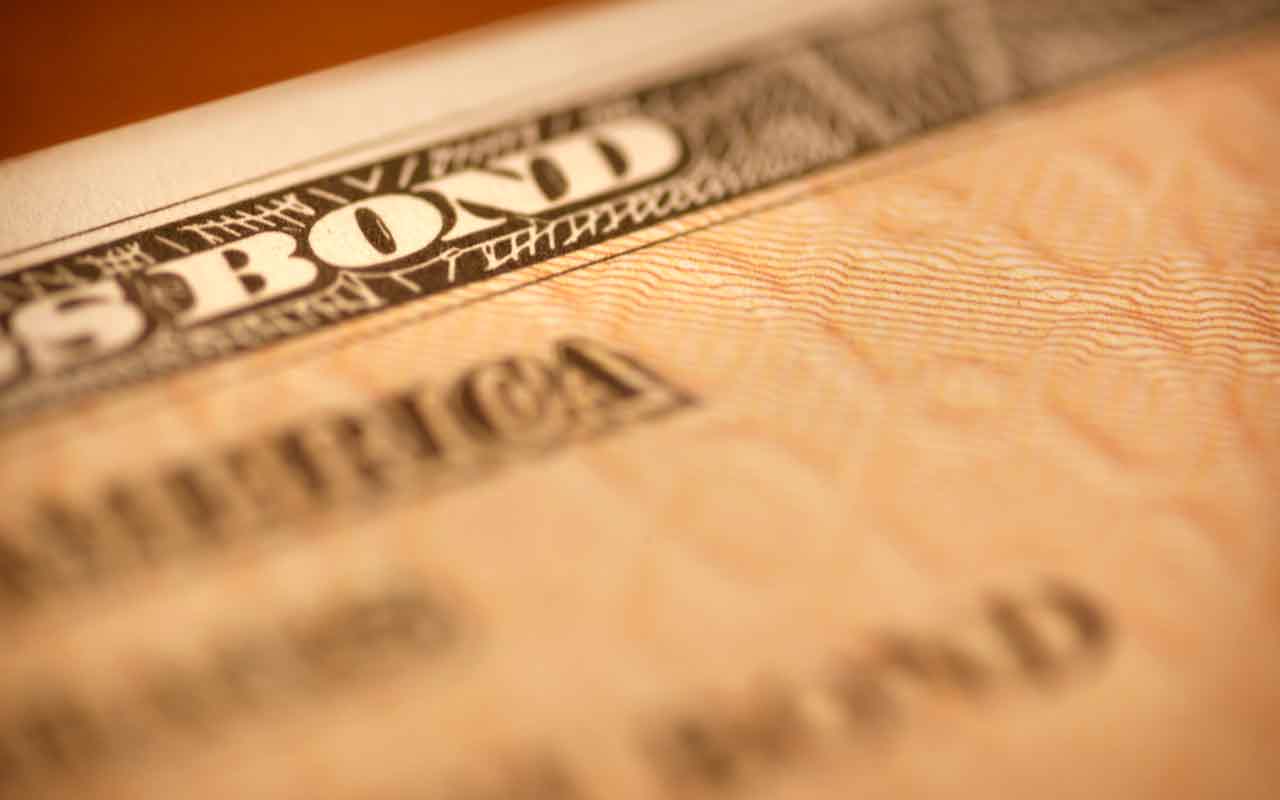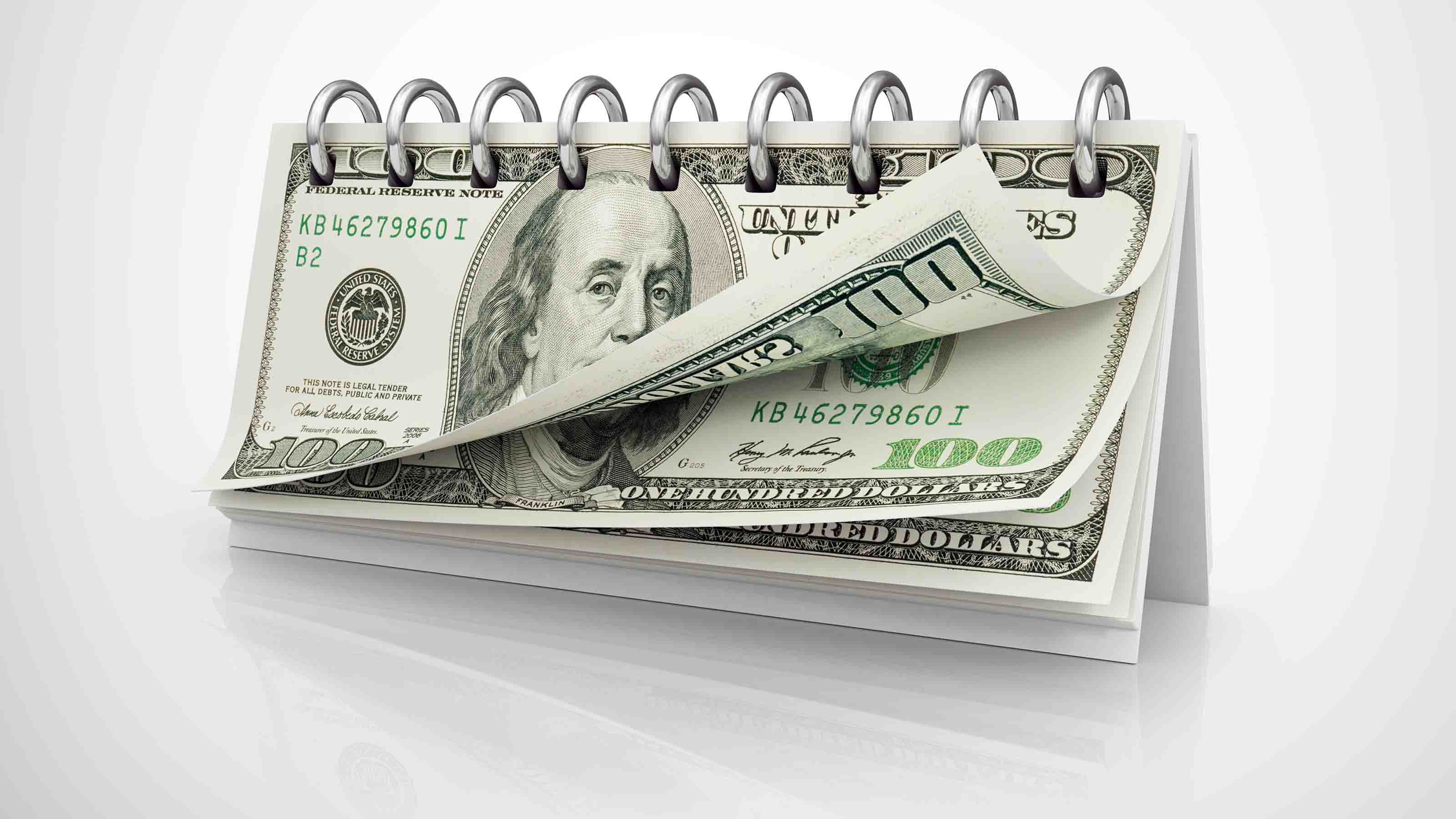Stand By Your Bonds
I’d be scared if I thought that interest rates would shoot up across the board and that the creditworthiness of borrowers is wilting. But I just don’t see it.


Profit and prosper with the best of Kiplinger's advice on investing, taxes, retirement, personal finance and much more. Delivered daily. Enter your email in the box and click Sign Me Up.
You are now subscribed
Your newsletter sign-up was successful
Want to add more newsletters?

Delivered daily
Kiplinger Today
Profit and prosper with the best of Kiplinger's advice on investing, taxes, retirement, personal finance and much more delivered daily. Smart money moves start here.

Sent five days a week
Kiplinger A Step Ahead
Get practical help to make better financial decisions in your everyday life, from spending to savings on top deals.

Delivered daily
Kiplinger Closing Bell
Get today's biggest financial and investing headlines delivered to your inbox every day the U.S. stock market is open.

Sent twice a week
Kiplinger Adviser Intel
Financial pros across the country share best practices and fresh tactics to preserve and grow your wealth.

Delivered weekly
Kiplinger Tax Tips
Trim your federal and state tax bills with practical tax-planning and tax-cutting strategies.

Sent twice a week
Kiplinger Retirement Tips
Your twice-a-week guide to planning and enjoying a financially secure and richly rewarding retirement

Sent bimonthly.
Kiplinger Adviser Angle
Insights for advisers, wealth managers and other financial professionals.

Sent twice a week
Kiplinger Investing Weekly
Your twice-a-week roundup of promising stocks, funds, companies and industries you should consider, ones you should avoid, and why.

Sent weekly for six weeks
Kiplinger Invest for Retirement
Your step-by-step six-part series on how to invest for retirement, from devising a successful strategy to exactly which investments to choose.
I'm expecting another good year for bond and bond-style investments in 2020. Not as spectacular as 2019, but rewarding enough to feel confident about sticking with what's working.
A year ago, my plea to stand by your bonds in 2019 appeared stubborn if not reckless. Late in 2018, long-term Treasury and other interest rates were surging (with prices moving in the opposite direction), the Federal Reserve was tightening short-term credit, and economic growth was running closer to 3% than the tame 2% that's the sweet spot for fixed-income portfolio returns. Popular and expertly managed funds such as Baird Aggregate Bond, Dodge & Cox Income, Loomis Sayles Bond and Vanguard Total Bond Market finished 2018 with rare and unexpected losses—slim, bearable ones, but losses nonetheless—while banks were ratcheting rates on insured savings accounts to beyond 2% with the Fed as their partner.
But my reasons for ignoring the naysayers in 2019 remain the same for 2020. Extended bull markets don't go over a cliff. They transition and wither away over months, often years. I'd be scared if I thought that U.S. interest rates are finally set to shoot up across the board and that the creditworthiness of borrowers is wilting. But I just don't see it. The globalized “lower for longer” rate argument I've embraced for 10 years lives on.
From just $107.88 $24.99 for Kiplinger Personal Finance
Become a smarter, better informed investor. Subscribe from just $107.88 $24.99, plus get up to 4 Special Issues

Sign up for Kiplinger’s Free Newsletters
Profit and prosper with the best of expert advice on investing, taxes, retirement, personal finance and more - straight to your e-mail.
Profit and prosper with the best of expert advice - straight to your e-mail.
Where to reach for yield. That means it's safe and effective to stretch for yield, whether with high-dividend stocks, such as AT&T and real estate investment trusts, or with high-interest, BBB-rated corporate bonds, municipals and preferred stocks. (Technically, preferreds pay dividends, but as a practical matter they are senior fixed-rate debt.)
The headache for income investors in 2020 is not likely to come from accelerating losses, but from the challenge of finding fewer worthy choices for new investments. Rates are low—but remember, most of the rest of the world is dealing with negative yields.
Investors can still find fresh high-yield (so-called junk) bonds yielding 4% and bank preferreds delivering 4.75%. Knee-jerk thinking holds that such yields are risky and a sign that the end of the boom is nigh. My interpretation is that Toll Brothers, Fifth Third Bank and the like have no trouble placing such borrowings, and if you happen to be one of their investors, you'll get paid in full and on time.
Fixed-income fundamentals are still positive, says Doug Baker, who manages various closed-end funds for Nuveen, including Nuveen Preferred and Income Term Fund (symbol JPI), which has a 2019 total return through October 31 of 30.7%. Baker says tight or tighter bond supplies, continuing high demand and constant refinancing of higher-rate debt are all positives.
Risk is mainly sector-specific. An indicator called the junk-bond distress ratio is at a three-year high. But exclude energy and the ratio (the proportion of junk bonds trading at inflated interest-rate spreads over Treasuries) falls below where it ended 2018. The average junk fund returned over 10% in 2019. Don't count on a 10% return again in 2020, but don't rule it out.
This happy talk doesn't mean to abandon all discipline. A rule of thumb is to look for bonds or funds with a yield that is greater than their duration, which measures interest-rate sensitivity. The lower the duration, the smaller the loss if rates rise. Osterweis Strategic Income (OSTIX) and PGIM Short Duration High Yield (HYSAX) both have durations of less than 2, yields pushing 4% to 5%, and long records of success. I also think tax-exempt bonds will continue to rock the world in 2020—more on munis in a future column.
Profit and prosper with the best of Kiplinger's advice on investing, taxes, retirement, personal finance and much more. Delivered daily. Enter your email in the box and click Sign Me Up.

Kosnett is the editor of Kiplinger Investing for Income and writes the "Cash in Hand" column for Kiplinger Personal Finance. He is an income-investing expert who covers bonds, real estate investment trusts, oil and gas income deals, dividend stocks and anything else that pays interest and dividends. He joined Kiplinger in 1981 after six years in newspapers, including the Baltimore Sun. He is a 1976 journalism graduate from the Medill School at Northwestern University and completed an executive program at the Carnegie-Mellon University business school in 1978.
-
 The Cost of Leaving Your Money in a Low-Rate Account
The Cost of Leaving Your Money in a Low-Rate AccountWhy parking your cash in low-yield accounts could be costing you, and smarter alternatives that preserve liquidity while boosting returns.
-
 I want to sell our beach house to retire now, but my wife wants to keep it.
I want to sell our beach house to retire now, but my wife wants to keep it.I want to sell the $610K vacation home and retire now, but my wife envisions a beach retirement in 8 years. We asked financial advisers to weigh in.
-
 How to Add a Pet Trust to Your Estate Plan
How to Add a Pet Trust to Your Estate PlanAdding a pet trust to your estate plan can ensure your pets are properly looked after when you're no longer able to care for them. This is how to go about it.
-
 The Most Tax-Friendly States for Investing in 2025 (Hint: There Are Two)
The Most Tax-Friendly States for Investing in 2025 (Hint: There Are Two)State Taxes Living in one of these places could lower your 2025 investment taxes — especially if you invest in real estate.
-
 The Final Countdown for Retirees with Investment Income
The Final Countdown for Retirees with Investment IncomeRetirement Tax Don’t assume Social Security withholding is enough. Some retirement income may require a quarterly estimated tax payment by the September 15 deadline.
-
 Why Investors Needn't Worry About U.S. Credit Downgrade
Why Investors Needn't Worry About U.S. Credit DowngradeFitch Ratings The United States saw its credit rating downgraded for just the second time in history, but experts aren't worried about the long-term damage to stocks.
-
 Income-Investing Picks for a Recession
Income-Investing Picks for a RecessionInvesting for Income Some consequences of an economic downturn work to the benefit of fixed-income investors. Here are three fund ideas that fit the bill.
-
 Dogs of the Dow Are 2022's Best in Show
Dogs of the Dow Are 2022's Best in Showdividend stocks Some of the best investments for income investors in a volatile 2022 have come from the Dogs of the Dow.
-
 Bond Values in a Volatile Market
Bond Values in a Volatile MarketInvesting for Income While the market's instability may not be over just yet, the latter half of the year should be less daunting – and possibly more rewarding – for investors.
-
 Should You Buy Bonds Now? What To Consider
Should You Buy Bonds Now? What To Considerbonds The fixed-income market has been turned on its head in recent years, but there are still opportunities for those looking to buy bonds again.
-
 Dividend Dates: A Beginner's Guide
Dividend Dates: A Beginner's Guidedividend stocks Everything you need to know about ex-dividend dates, dividend announcements and other parts of the dividend calendar.